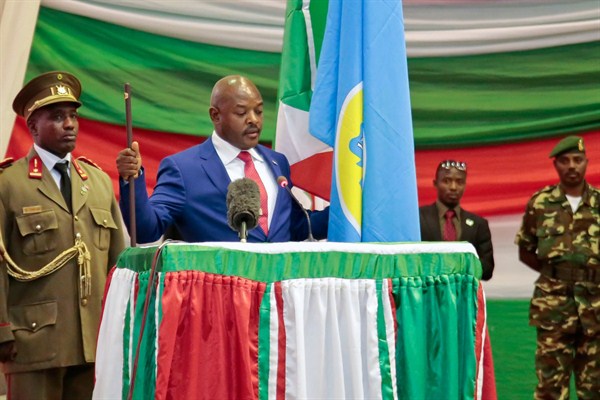Three months after Burundi held its third elections since the end of its long civil war, violence has only deepened in the country. July’s fraught presidential vote took place in an environment tainted by government crackdowns and fear, and there has been an alarming upsurge in arrests, detentions and killings, with bodies found almost daily in the streets of Bujumbura, the capital. On Monday, President Pierre Nkurunziza warned that Burundians must give up any illegal firearms by Saturday, or risk being “dealt with as enemies of the nation.”
Burundi had already descended into crisis in April, following the announcement of Nkurunziza’s controversial bid for a third term. Since then, targeted killings of key opposition figures have multiplied. In May, opposition leader Zedi Feruzi, who headed the opposition Union for Peace and Development party and was an outspoken critic of Nkurunziza’s third term, was killed in Bujumbura. In September, the party’s spokesman, Patrice Gahungu, was shot dead on his way home in Bujumbura. In October, the body of Charlotte Umugwaneza, an activist for the opposition Movement for Solidarity and Democracy (MSD), was found in the Gikoma River. Human rights activist Pierre Claver Mbonimpa survived his own assassination attempt in August.
Opposition figures, however, are not the only victims. Attacks on journalists have also grown in the past few months. Now, as a result, the majority of the opposition is outside of the country, and journalists are fleeing, leaving an information vacuum that social media has tried to fill.

